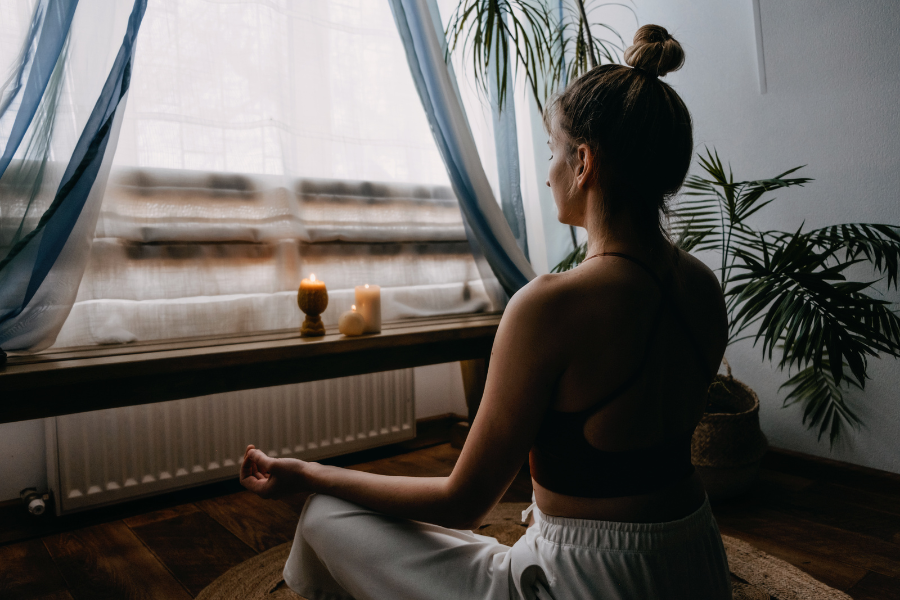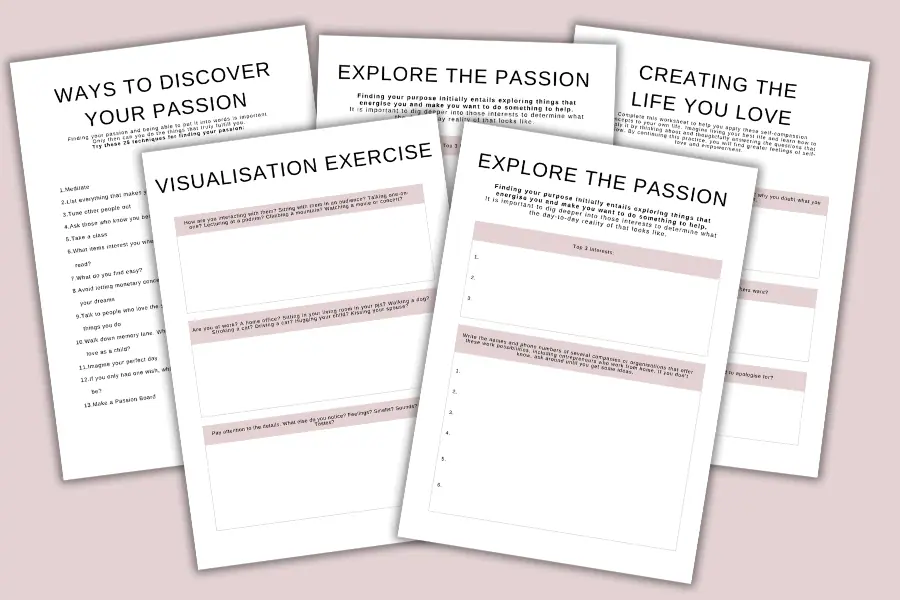How to Practice Gratitude Daily for Better Mental Health

Learning how to practice gratitude daily can have a positive impact on your mental health. Focusing on the positive in your life can shift your focus and lift your mood.
In this post, we will discuss why gratitude is important for mental health, how to practice gratitude and more.
This post is about how to practice gratitude daily for better mental health

The Benefits of Practising Gratitude
Practising gratitude has numerous benefits for mental health. Studies have shown that it can improve mood, increase happiness, and reduce symptoms of depression and anxiety. By focusing on what we’re grateful for, we shift our attention away from negative thoughts and feelings, which can help us feel more positive and optimistic.
Gratitude can also help us build stronger relationships with others. When we express gratitude to others, we reinforce positive emotions and strengthen our connections with them. This can lead to greater social support and a sense of belonging, which are important factors in promoting mental health.
In addition, practising gratitude can improve our overall well-being. It has been linked to better sleep, lower levels of stress, and improved physical health. By promoting positive emotions and reducing negative ones, gratitude can help us lead happier and more fulfilling lives.
Practising gratitude has a wide range of benefits for mental health, including improving mood, building stronger relationships, and promoting overall well-being.
How to Practise Gratitude
There are several strategies for how to practice gratitude every day. One of the most popular methods is keeping a gratitude journal, where you write down things you’re thankful for each day. To start, set aside a few minutes each day to reflect on what you’re grateful for and write it down. This can be as simple as jotting down three things you’re thankful for each morning or evening.
Another way to practice gratitude is by expressing it to others. You can do this by sending a thank-you note or telling someone in person how much you appreciate them. By expressing gratitude to others, you reinforce positive emotions and strengthen your relationships.
Using visual cues can also help you practice gratitude throughout the day. You can place reminders in your home or workspace, such as a sticky note or a picture, to remind you to be grateful. Whenever you see the visual cue, take a moment to reflect on what you’re thankful for.
Lastly, practising mindfulness is another effective way to practice gratitude. You can do this by taking a few deep breaths and focusing on things you’re grateful for. You can also use mindfulness techniques during a meditation session or simply take a few moments throughout the day to pause and reflect on the things you’re thankful for.
By incorporating these strategies into your daily routine, you can learn how to practice gratitude every day and improve your mental health. Whether it’s through a gratitude journal, expressing gratitude to others, using visual cues, or practising mindfulness, there are many ways to cultivate a grateful mindset and experience the benefits of gratitude.
Alternative Ways to Practice Gratitude
In addition to more traditional methods, there are also several unconventional ways to practice gratitude. One fun and creative way is through a gratitude scavenger hunt. Create a list of items or experiences that you’re grateful for and challenge yourself to find them throughout the day or week. This can be a fun way to cultivate a grateful mindset and focus on the positives in your life.
Another unconventional way to practice gratitude is through gratitude art. This can be anything from drawing or painting things you’re thankful for, to creating a collage or vision board of your gratitude. Engaging in a creative activity can help you focus on the present moment and express your gratitude in a unique way.
A gratitude walk is another way to practice gratitude. Take a walk outside and focus on the things you’re thankful for in nature, such as the trees, flowers, and animals around you. You can also use this time to reflect on the things you’re grateful for in your life.
Finally, volunteering your time or resources to help others can also be a way to practice gratitude. By giving back to your community or helping someone in need, you can cultivate a sense of gratitude for the things you have and the ability to make a difference in the lives of others.
By trying out these unconventional ways to practice gratitude, you can add variety to your routine and find new ways to cultivate a grateful mindset.

Overcoming Obstacles
While practising gratitude has numerous benefits, it can be challenging to make it a habit. One obstacle to practising gratitude is a negative mindset. If you’re feeling down or stressed, it can be difficult to shift your focus to positive things in your life. In these situations, it’s important to acknowledge your negative emotions and then try to reframe your thinking by focusing on the good things you have.
Another obstacle to practising gratitude is forgetting or being too busy. To overcome this, try setting reminders throughout the day or using a gratitude journal or app to keep track of what you’re thankful for.
Sometimes, life’s challenges can make it hard to feel grateful. In these situations, it’s important to remember that gratitude doesn’t mean ignoring or minimising difficult situations. Instead, it means finding positive aspects of your life, even during hard times. This can help you build resilience and find meaning in difficult situations.
Finally, some people may feel that they don’t have anything to be grateful for. In these situations, it can be helpful to start small and focus on simple things, like a warm meal or a kind gesture from a friend. Over time, you may find that your gratitude practice expands and you’re able to find more to be thankful for.
By recognising and overcoming these obstacles to practising gratitude, you can build a more consistent and meaningful gratitude practice that can have a positive impact on your mental health.
Building a Daily Gratitude Practice
To build a daily gratitude practice, it’s important to make gratitude a regular part of your routine. Start by setting aside time each day to reflect on what you’re thankful for, whether that’s in the morning, before bed, or during your lunch break.
One effective way to practice gratitude daily is through a gratitude journal. Write down three to five things you’re grateful for each day, and take the time to reflect on why you’re grateful for them. This can help you develop a habit of looking for the positives in your life.
Another way to build a daily gratitude practice is through meditation or mindfulness exercises. During your practice, focus on the things you’re thankful for and let any negative thoughts or emotions pass without judgment. This can help you develop a sense of calm and contentment.
It can also be helpful to share your gratitude with others. Take the time to thank someone who has made a positive impact on your life, or simply express your gratitude to loved ones. This can help strengthen your relationships and reinforce a sense of community.
Finally, it’s important to be patient and persistent when building a daily gratitude practice. It may take time to develop the habit, but over time you may find that it becomes easier to focus on the positives in your life and cultivate a sense of gratitude.
By implementing these strategies for building a daily gratitude practice, you can experience the many benefits of gratitude, including improved mental health and overall well-being.
5 Ways to Practice Gratitude
- Keep a gratitude journal: Take a few minutes each day to write down three to five things you’re grateful for, and why you’re grateful for them.
- Practice mindfulness: During your meditation or mindfulness practice, focus on the things you’re thankful for and let go of negative thoughts or emotions.
- Express gratitude to others: Take the time to thank someone who has made a positive impact on your life or simply express your gratitude to loved ones.
- Use positive affirmations: Incorporate positive affirmations into your daily routine, such as “I am grateful for all the good things in my life.”
- Notice the small things: Take time to appreciate the small things in your life, such as a beautiful sunset, a warm cup of coffee, or a friendly smile from a stranger.
This post was about how to practice gratitude daily for better mental health
Share this post: on Twitter on Facebook



